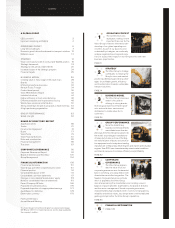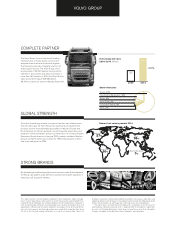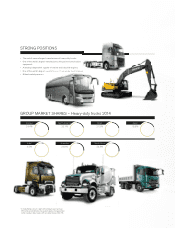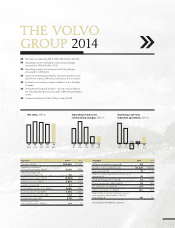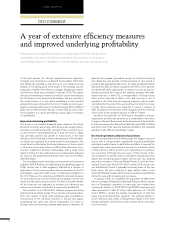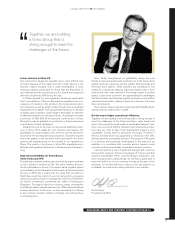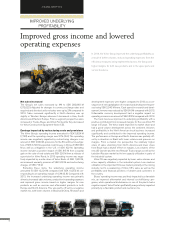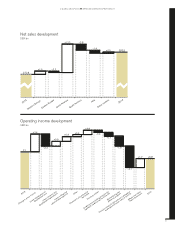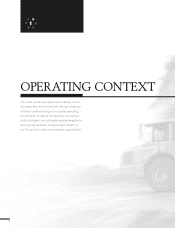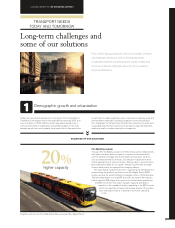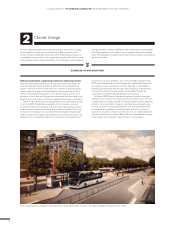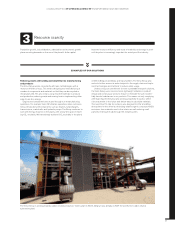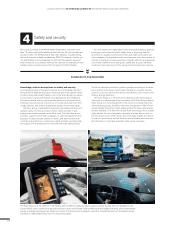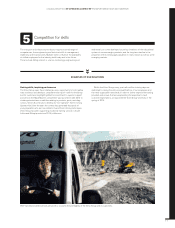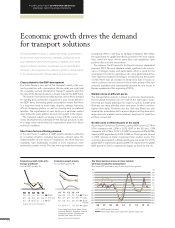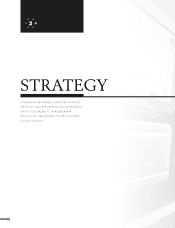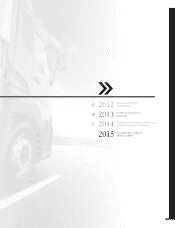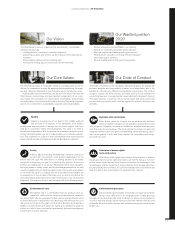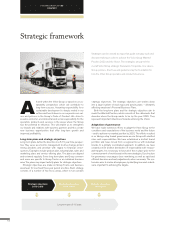Volvo 2014 Annual Report Download - page 12
Download and view the complete annual report
Please find page 12 of the 2014 Volvo annual report below. You can navigate through the pages in the report by either clicking on the pages listed below, or by using the keyword search tool below to find specific information within the annual report.
A GLOBAL GROUP 2014 OPERATING CONTEXT TRANSPORT NEEDS TODAY AND TOMORROW
There is widespread agreement that the burning of fossil fuels, including
oil and diesel, is a major source of greenhouse gas emissions, which
causes climate change. Businesses and other stakeholders aiming for a
sustainable transport sector must respond by improving fuel effi ciency and
moving towards lower carbon alternatives. This challenge is driving interest
2Climate change
Reducing emissions, supporting customers, improving results
When the Volvo Group developed the new heavy duty truck ranges for
Volvo and Renault Trucks launched in 2013–14, we considered every
aspect of the fuel effi ciency and emissions equation, including engines,
tractor weight, fuel type and driver behavior, and we continue to do so
with new technology developments. This will continue to result in new
solutions in the future with improved environmental, economic and social
benefi ts for our truck, bus, construction equipment and engine customers.
The Volvo Group was the fi rst manufacturer in the automotive industry
to join the WWF Climate Savers program, and the Group’s renewed
commitment drives the company to look for every opportunity to reduce
carbon emissions from our products and production facilities. The long-
term aim of the program is to accelerate the development toward lower
carbon emissions throughout the transport and construction sector. The
Group aims for a cumulative reduction of emissions from products and
EXAMPLES OF OUR SOLUTIONS
and opportunities in electromobility, as well as alternative and renewable
fuels. Developments across regions vary in speed and direction, depend-
ing on the availability of natural resources and fuels, infrastructure, political
will, and incentives.
production by at least 40 Million tons of CO2 by 2020 compared with
2013, and is developing a truck prototype with substantially lower fuel
consumption. Inthe construction industry, Volvo CE is committed to
developing technologies that will offer major effi ciency improvements,
and push the industry towards greater sustainability through the
Construction Climate Challenge dialogue and research.
The Volvo 7900 Electric Hybrid bus represents another concrete
example of our response to climate and environmental issues. The use
ofthese vehicles in cities will help to improve people’s lives by reducing
pollution, noise, and traffi c congestion. Another area where we strive
tomeet customers’ evolving requirements concerns alternative fuels.
Forexample, as regulation in some European and other countries is
expected to provide increased incentives for the use of alternative fuels
in public procurement contracts, Renault Trucks responded by offering
three models from the urban range that can run on biodiesel.
Volvo’s hybrid buses contribute to decreased fuel consumption, lower emissions of carbon dioxide and reduced noise levels.
8


